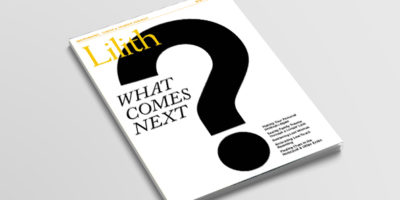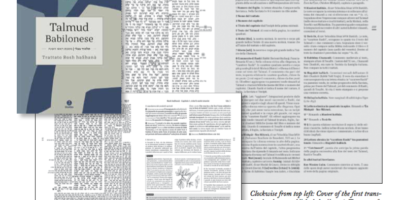“Birthright stole my kids’ future”
The Real Crisis: Jewish Illiteracy
We can’t afford to be Jewish parents. A quick survey of my friends and colleagues reveals an enormous “concern gap” between elite and average American Jews. Anxiety over theoretical grandchildren is not a luxury my generation can afford.
What keeps my demographic up at night is the staggering burden of student loan debt, it makes me think how I should have used a student loan payoff calculator before taking out a loan, the skyrocketing cost of childcare, and the intimidating price of Jewish education. In short, my cohort faces the worst economic situation for young, childbearing-age people who would potentially want to raise Jewishly identifying and educated kids.
Forget about worrying if my non-existent grandchildren will be non-Jews. My (quite justified) worry is about the costs of being a Jewish parent today and the fact that a good Jewish education has become a luxury only for the wealthy, and/or those with the utmost commitment.
American Jews my age are all the more bitter, having seen millions of philanthropic dollars poured into free vacations for teenagers instead of subsidizing universal Jewish education. Given all that, to try to separate out demographic worries from life or death economics seems, from my perspective, dangerously foolish.
The elite obsession with demographics seems even more misplaced when compared to the profound depths of Jewish illiteracy holding among the vast majority of American Jews. Just to start, 48% of American Jews surveyed by the Pew study said they didn’t even know alef-beys. Consider: Almost half of American Jews cannot access (even at entry-level) traditional Jewish texts, while 71% of non-Orthodox American Jews are intermarried. The latter statistic is framed as a crisis, the former seems barely a footnote in the communal al kheyt [the penitential Yom Kippur prayer]. A crisis demands intervention and provides justification for those who specialize in those selfsame fields: journalists, academics, clergy, foundation heads.
The current rate of intermarriage is fact framed by these “entrepreneurs” as a crisis. The vast majority of American Jews, that intermarrying majority, see their marriages not as a crisis or even a cri de coeur but as an unremarkable choice. Rather than seeing the Jew of 2016 as a product of decades of choice, our leaders frame the very obvious outcome as a crisis. Perhaps we would do better to start asking ourselves whose crisis and to what end.
Rokhl Kafrissen in “How the Jewish-American Elite Has Manufactured the Intermarriage ‘Crisis’,” Haaretz, October 27, 2016.





